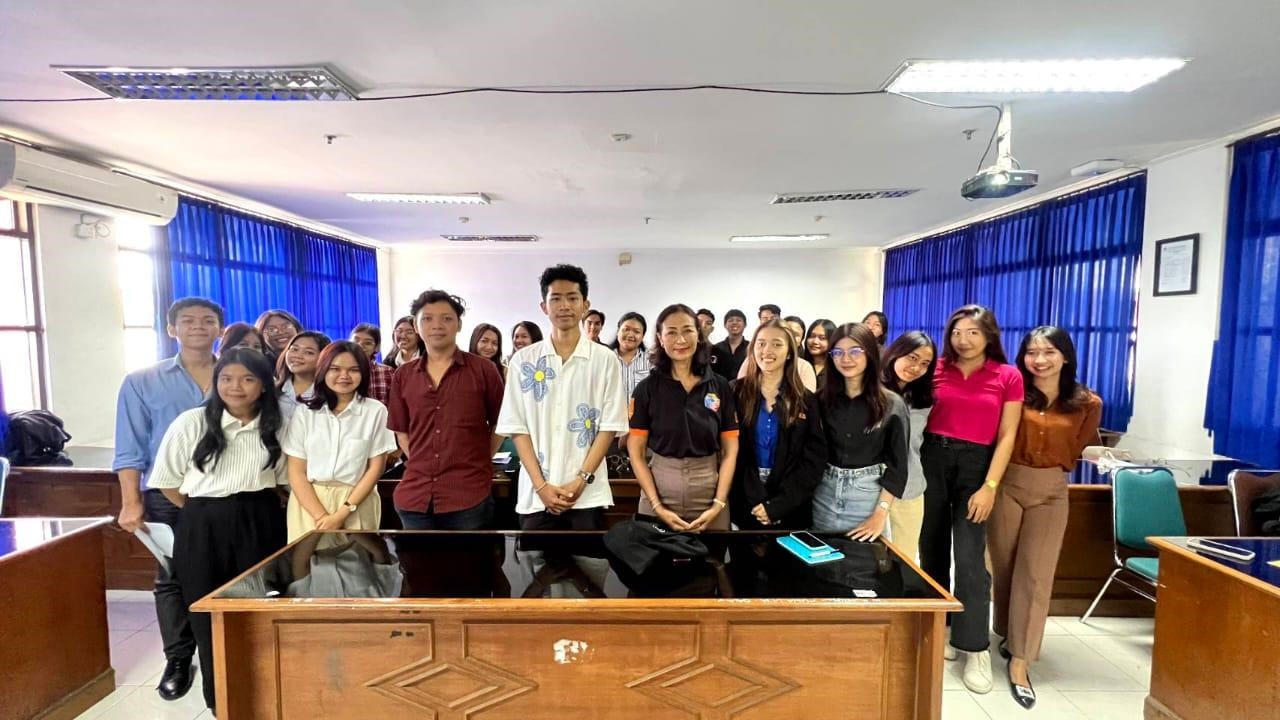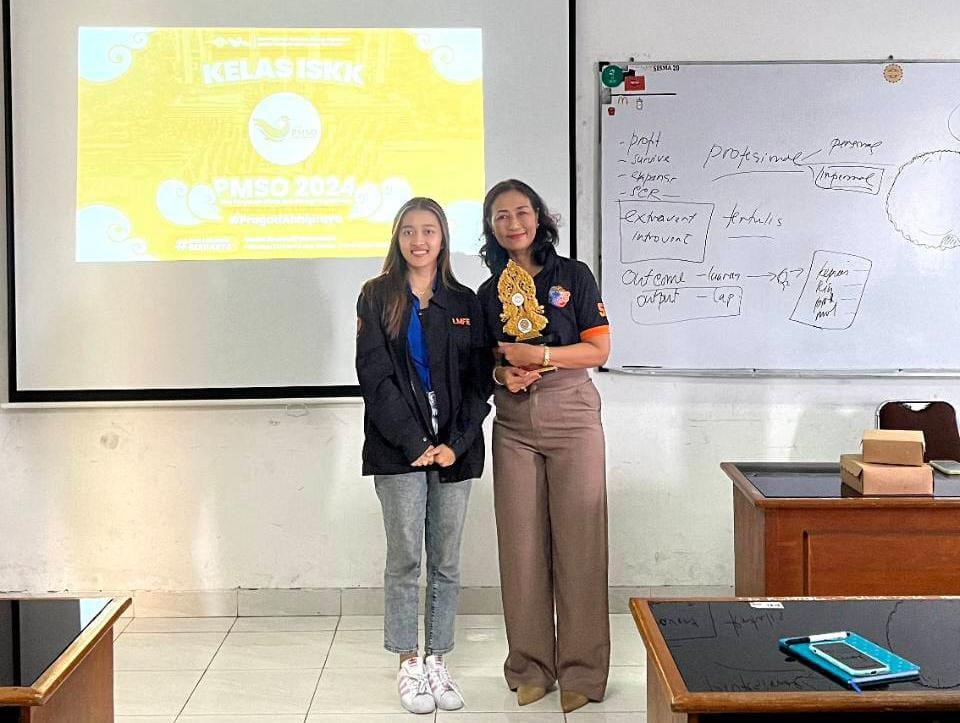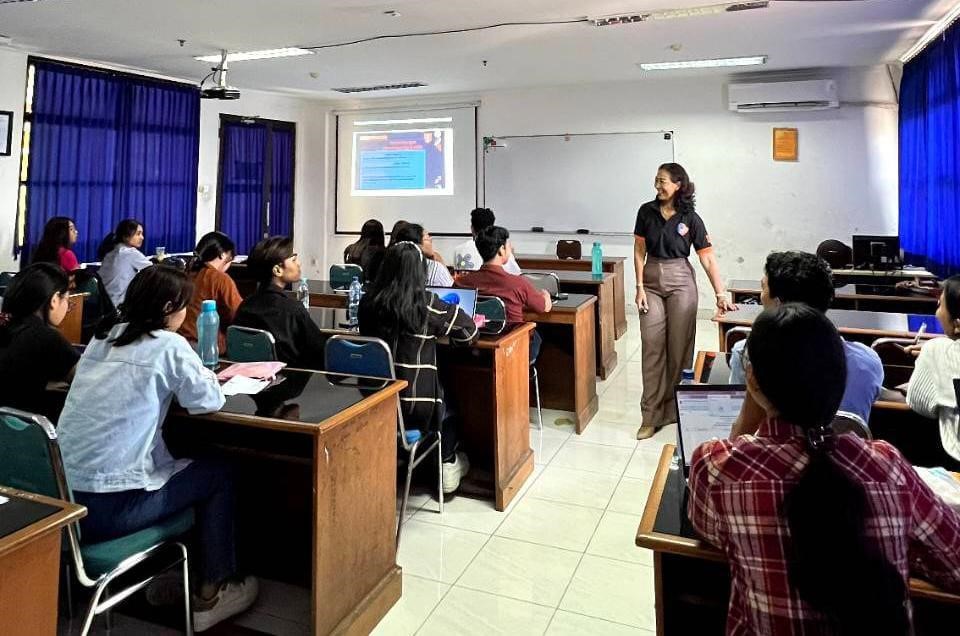Creating Synergy in Organizations, BEM FEB Unud Holds Conflict Management and Negotiation Classes
The Student Executive Board of the Faculty of Economics and Business, Udayana University (BEM FEB Unud) held an ISKK class on Saturday, January 20, 2024, which took place in BM Room 2.3, Sudirman Campus, Denpasar. The ISKK class is one of the new work programs under the auspices of the Organizational Synergy Quality Development Bureau (PMSO) of BEM FEB Unud in the form of material exposure by lecturers to prepare the front guard of BEM FEB Unud, namely ISKK from BEM FEB Unud, to get provisions that will be useful for the next period in the world of organizations. The ISKK BEM FEB Unud class was attended by 30 participants, bringing in a great speaker, namely the Unud FEB Management Lecturer, Dr. Dra. I Gusti Ayu Manuati Dewi, M.A. In this ISKK class, the topic raised was related to "conflict management and negotiation." Conflict management is an effort that needs to be made in order to prevent and avoid conflicts and reduce risks that can interfere with performance in an organization. Negotiation is a process carried out by two or more parties to reach an agreement that can meet the satisfaction of all parties. Conflict management and negotiation are both interrelated because, in resolving a conflict, a negotiation is certainly needed to reach a settlement and produce a mutual agreement for continuity in an organization. Not only in organizations but in life.
According to lecturer Dr. Dra. I Gusti Ayu Manuati Dewi, M.A., we cannot avoid conflict because, in life, of course, we will certainly encounter things that can result in conflict, whether it is a small conflict or a big conflict. The existence of a conflict is sometimes associated with a division. However, according to him and some responses from ISKK, conflict can be good or bad depending on how to manage it. In an organization, sometimes conflict becomes something that can encourage its members to develop. The existence of conflict will open many opinions from different points of view and will then encourage the sensitivity of each member so as to produce a decision that can prosper its members. Conflict resolution in an organization is expected to strengthen the relationship between members of the organization. In an organization, of course, there are different complexities such as the number of members, the scope of the organization, the structure of the organization, and the objectives of the organization.
The keywords of Conflict Management and Negotiation consist of 4 of them, (1) Parties involved, (2) Conflict strategies, (3) Conflict control, and (4) Conflict resolution. In various conflicts, be it individual, organizational, and environmental conflicts, the impact and resolution of these conflicts certainly vary, ranging from hidden conflicts (conflicts that we cannot see whether there will be or not), predictable conflicts (the existence of conflicts has begun to be felt by guessing), conflicts that can be felt (conflicts we can already feel), and real / open conflicts (conflicts that have really happened). As explained by Lecturer Dr. Dra. I Gusti Ayu Manuati Dewi, M.A and several responses from ISKK that conflict can be good and bad depending on how the conflict is resolved or handled. In Conflict Management, conflict types generally consist of 2 types, namely Functional Conflict (conflict that supports group goals and improves performance) and Dysfunctional Conflict (conflict that hinders group performance).



.jpg)
FACULTY OF ECONOMICS AND BUSINESS - UDAYANA UNIVERSITY